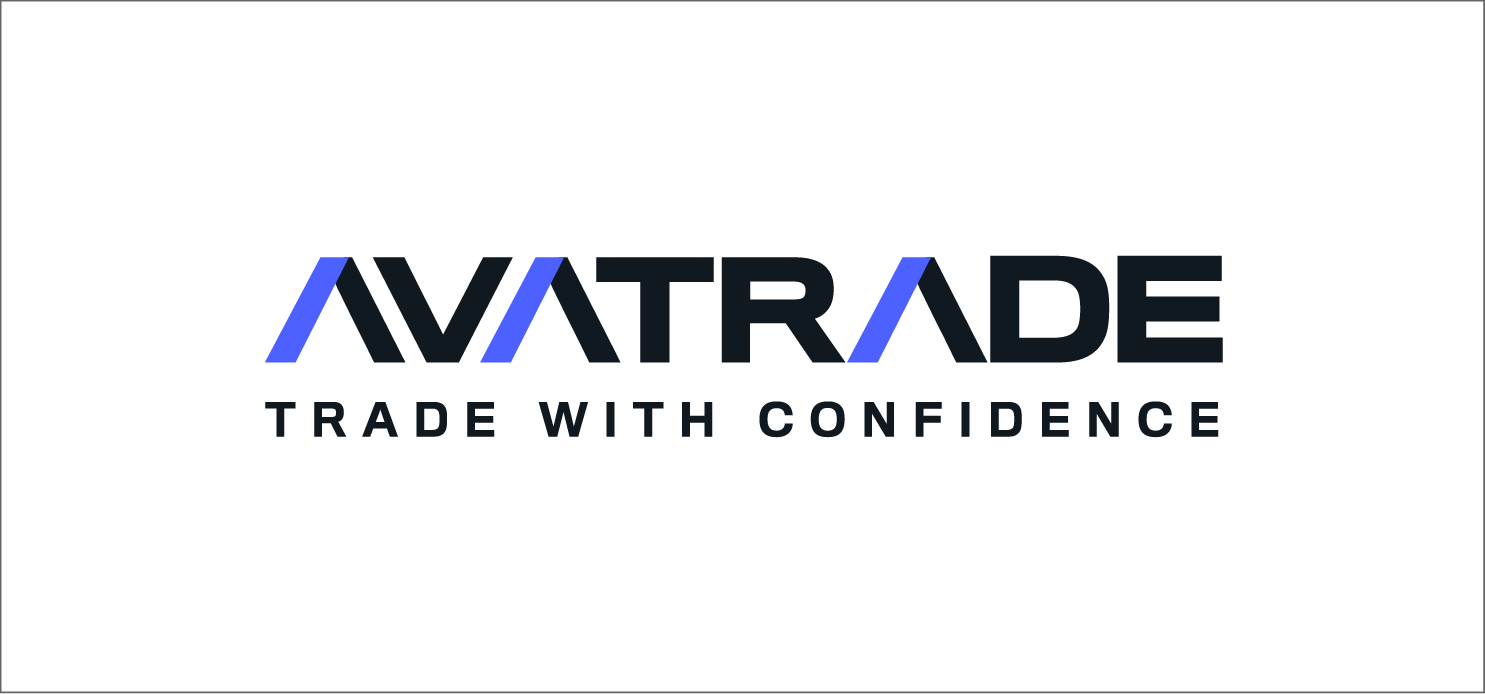Best 10 Options Brokers in the UK (January 2026)
All products and services featured are independently selected by WikiJob. When you register or purchase through links on this page, we may earn a commission.
- A List of the Top Options Brokers in the UK for January 2026
- Comparison Chart for the Top Options Brokers in the UK for January 2026
- Description of the Best Options Brokers in the UK for January 2026
- What Are Options?
empty
- What Are the Advantages of Options Trading?
- What Are the Disadvantages of Options?
- How to Compare Option Brokers
- How to Trade Options in the UK: Step by Step
- What Are Paper Options?
- Frequently Asked Questions
- Final Thoughts
While options trading can seem somewhat overwhelming when first starting out, the fact is that once you have an insight into how the process works, it becomes far simpler and easier to understand.
Usually, investor portfolios utilise a range of asset classes, including stocks, bonds and mutual funds.
Options act as another form of asset type, and when utilised correctly, they can offer a wide range of investment benefits.
A List of the Top Options Brokers in the UK for January 2026
- Most User Friendly CFD service: Plus500
- Best for welcome bonus: AvaTrade
- Best for comprehensive Options offering: IG
- Best for variety of Options: Saxo
- Best for low forex fees: XTB
- Best for beginner's journey: IQcent.com
- Best for day to day trading: Videforex.com
- Best for small budgets: Binarycent.com
- Best for weekly contest with highest bonuses: Raceoption.com
- Best for options trading: Tastyworks
Comparison Chart for the Top Options Brokers in the UK for January 2026
Regulation FCA, ASIC, CySEC, MAS, FSCA, FMA, FSP | Spread/Cost Variable spreads, no commission | Customer Service 24/7 (Live Chat, Email, Phone) | |||
Regulation ASIC, FSCA, B.V.I FSC, Central Bank of Ireland | Spread/Cost Fixed spreads, 20% welcome bonus | Customer Service 24/5 (Live Chat, Email, Phone) | |||
Regulation FCA | Spread/Cost Variable spreads, fees | Customer Service 24/7 (Live Chat, Email, Phone) | |||
Company Saxo | Regulation FCA, FSA, MAS, ASIC, FINMA, ACPR, JFSA, SFC | Spread/Cost Variable | Customer Service Live chat, phone, email | ||
Regulation FCA, KNF, CySEC | Spread/Cost Variable spreads, low Forex fees | Customer Service 24/5 (Live Chat, Email, Phone) | |||
Company IQcent | Regulation Not specified | Spread/Cost Variable spreads, no commission | Customer Service 24/7 (Live Chat, Email, Phone) | ||
Company Videforex | Regulation Not specified | Spread/Cost Variable spreads, no commission | Customer Service 24/7 (Live Chat, Email, Phone) | ||
Company Binarycent | Regulation Not specified | Spread/Cost Variable spreads, no commission | Customer Service 24/7 (Live Chat, Email, Phone) | ||
Company Rece Option | Regulation Not specified | Spread/Cost Variable spreads, no commission | Customer Service 24/7 (Live Chat, Email, Phone) | ||
Company Tasty Trade | Regulation FINRA, NFA, CME | Spread/Cost Variable spreads, fees | Customer Service 24/5 (Live Chat, Email, Phone) |
Description of the Best Options Brokers in the UK for January 2026
There are a wide range of choices when it comes to options brokers in the UK.
However, not all online brokers and platforms are born equal, so it’s worth taking the time to determine which option is the best fit for you and your trading style and requirements.
1. Plus500
Pros
- No buy/sell commissions and tight spreads
- Leverage of up to 1:30
- FREE unlimited Demo
- 2,800+ CFD trading instruments
- Real-time quotes and advanced analytical tools
- Fast and reliable order execution
Cons
- No API integrations
- No social copy trading
Beginners must use the demo account and the Trading academy to gain experience before trading with real capital due to the risks involved.
Plus500 instruments are available for trading exclusively via CFDs and the service offered on the platform is CFD-based.
Plus500 is widely recognized as a competitive options broker, appealing to traders looking for access to various financial markets via CFDs.
Plus500 offers a broad range of financial instruments, including options on many popular market indices, stocks, and commodities. This diversity allows traders to explore various markets and employ different strategies using just one platform.
Plus500 provides a proprietary trading platform that is known for its intuitive design. This platform is accessible via web or mobile apps, offering a seamless trading experience for users on the go.
Plus500 allows traders to use leverage on options trading, which can potentially increase gains from small price movements. However, it's important to remember that while leverage can amplify returns, it also increases the risk of losses.
The platform includes a range of risk management tools, such as stop-loss orders, which are essential for managing and mitigating risks associated with trading options.
Plus500 operates under the oversight of several financial authorities, including the UK’s Financial Conduct Authority (FCA) and the Australian Securities and Investments Commission (ASIC), ensuring that it adheres to strict regulatory standards. This regulatory framework provides traders with an added layer of security.
Plus500 does not charge commission on trades, which can reduce overall trading costs. Instead, the broker earns from the spread, which is the difference between the buy and sell prices of an asset.
While Plus500 offers fewer educational resources than some other brokers, it does provide traders with useful guides and FAQs that help in understanding the basics of options trading and platform functionalities.
2. AvaTrade
Pros
- Worldwide regulated
- Multiple platforms – MT4, MT5, etc.
- Negative balance protection
- 20% welcome bonus
- Educational content
- Wide rage of payments methods
- Fixed spreads
Cons
- You can’t buy stocks
- Quarterly and annual inactivity fees
- Customer support is not available 24/7
- No bonus for EU based clients
- No US clients accepted
- Imitated crypto assets
AvaTrade is a CFD Regulated broker with +1,000 financial instruments and multiple trading platforms. It has been operating since 2006.
It offers a 20% welcome bonus up to $10,000, according to regulation and a free 21-day demo trading account with $100,000.
AvaTrade provides traders with the opportunity to trade options on various assets, including forex currency pairs, stocks, commodities and indices.
The options trading feature is available on AvaTrade's platform and can be accessed by traders looking to engage in options trading strategies.
However, it's important to note that options trading is a complex and potentially risky form of trading. If you're considering options trading, it's advisable to ensure that you have a good understanding of options and their associated risks.
Additionally, you may want to explore AvaTrade's options trading offerings, available assets, trading tools and support before making any trading decisions.
AVATrade EU Ltd is regulated by the Central Bank of Ireland. (No.C53877) Ava Trade Markets Ltd. is regulated by the B.V.I Financial Services Commission.
It is also highly regulated in Australia, South Africa, Japan, Middle East, Cyprus and Israel.
You can not trade with AvaTrade in the US, North Korea, New Zealand, Iran or Belgium.
Mínimum deposit of $100, no withdraw limit and no fees.
3. IG
Pros
- Highly regulated
- MetaTrader 4 (MT4)
- Over 10,000 instruments
- Available in the UK and US
- 24/7 customer support
Cons
- High fees
- No deposit compensation scheme for US accounts
- No copy trading
- Inactivity fees
IG is known for offering a robust options trading platform, making it a suitable choice for traders interested in options trading.
IG provides access to a wide range of options on various assets, including stocks, indices, commodities and forex currency pairs.
IG's options trading platform offers advanced features such as customizable options chains, real-time pricing and risk management tools.
Traders can choose from different types of options strategies, such as calls and puts, and have the flexibility to create complex options positions.
Additionally, IG provides educational resources and research materials to help traders understand options trading and make informed decisions. The platform's user-friendly interface, combined with its analytical tools, allows traders to execute options trades efficiently.
4. Saxo
Pros
- Heavily regulated
- Good product portfolio
- Low forex fees
- No withdrawal or inactivity fees
Cons
- Does not accept US clients
- High fees for options, futures and bonds
Saxo is widely recognized as one of the best brokers for options trading, combining competitive pricing, extensive market access, and advanced trading tools.
Saxo offers access to over 3200 listed options from 20 exchanges worldwide. This broad market access allows traders to engage in options trading on stocks, indices, interest rates, futures, and commodities, providing ample opportunities for diversified investment strategies.
Trading stock options with Saxo can be very cost-effective, with fees as low as USD 0.75 per option. This competitive pricing structure makes it easier for traders to manage costs while executing high-volume or complex trading strategies.
Saxo's platforms, SaxoTraderGO and SaxoTraderPRO, are equipped with specialized tools for options trading. These include detailed analytics, risk management features, and visual depictions of potential profit and loss scenarios, which are vital for effective options trading.
As a regulated bank, Saxo adheres to stringent standards, offering a secure environment for trading. This is crucial for options traders who need assurance that their investments are protected.
Saxo excels in providing educational support to traders at all levels. It offers a wealth of resources tailored to options trading, including tutorials, webinars, and comprehensive guides that cover both fundamental and advanced topics.
Saxo provides robust customer support through multiple channels such as live chat, phone, and email. This ensures that traders can receive timely assistance and guidance, which is especially valuable for those new to options trading or dealing with complex issues.
5. XTB
Pros
- Regulated by the FCA (Financial Conduct Authority)
- Low forex fees
- Fast withdrawal and deposit with no fee
- Live chat customer service
Cons
- No US clients
- Limited product portfolio
- High fees for stock CFDs
As a broker that you can trust, XTB is both well-regulated and listed on the stock exchange. The registered office is in Canary Wharf, London.
XTB offers options trading as part of its trading services. XTB provides traders with the opportunity to trade options on various assets, including forex currency pairs, commodities, indices and stocks.
XTB's array of options strategies spans from buying calls or puts to writing covered calls, and even delving into more intricate strategies like straddles and strangles. This diversity empowers you to align your trading approach with your market perspective.
Furthermore, XTB's professional options trading platform furnishes real-time options pricing, customizable options chains and tools for managing risk. With this platform, you can seamlessly analyze, execute and manage your options trades.
CFDs are complex instruments and come with a high risk of losing money rapidly due to leverage. 69-80% of retail investor accounts lose money when trading CFDs with this provider. You should consider whether you understand how CFDs work and whether you can afford to take the high risk of losing your money.
6. IQcent.com
Pros
- Low minimum deposit
- Copy trading available
- User-friendly interface
- A higher than industry average yield that peaks at 95% or more
- 0% commission on deposits, withdrawals and account maintenance fee
- User-friendly platform with fast trade executions
- Reliable support team
- Copy Trading feature
Cons
- Lacks regulation
- Withdrawals can be difficult
- Limited chart tools and lacks educational resources
- IQcent mostly used for Binary Option style of trading, therefore, some tools might not be available due to the simplicity of the chart
IQcent.com primarily focuses on binary options trading, which is a different type of trading compared to traditional options trading.
Binary options involve predicting whether the price of an underlying asset will go up or down within a specified time frame.
Traditional options trading, on the other hand, offers more flexibility in terms of strategies and outcomes. It allows traders to engage in various options strategies beyond simple price direction predictions, such as buying calls or puts, spreads, and more.
If you're specifically interested in traditional options trading, you might need to explore other trading platforms that specialize in offering traditional options trading on a variety of assets like stocks, indices, commodities and forex pairs.
Always ensure to research and choose a platform that aligns with your trading preferences and goals.
IQcent.com has a variety of different payment gateways for easy deposits and withdrawals. It is easy to set up an account in seconds because the platform is user-friendly.
Trading can start immediately after the initial deposit.
There are various reasons to trade with IQcent starting from the easy to understand software to a very reliable withdrawal system or be it the flexibility of its trading platform, diversity of the trading instruments, progressive partnership opportunities for loyal customers and bonuses – these benefits are what makes IQcent the best choice among all others.
7. Videforex.com
Pros
- 24/7 live video chat support
- Credit/debit card deposits and withdrawals available
- Copy trading
- Demo account (though only accessible after minimum deposit)
Cons
- Not regulated
- Not available to US clients
- Lacks educational resources
- Inactivity fee
Videforex primarily offers binary options trading, which is a specific type of options trading where traders predict whether the price of an underlying asset will go up or down within a specified time frame. Binary options trading is known for its simplicity and fixed outcomes.
However, it's important to note that binary options trading is considered risky and is prohibited in some countries due to its resemblance to gambling and potential for significant losses.
Videforex stands out from other trading platforms by literally greeting the traders with a Live Video-Chat feature.
For the first time in the industry, traders are able to see who they are dealing with as opposed to talking to a faceless entity behind the computer screen.
However this unusual but very outstanding feature is not the only reason you should choose Videforex as your main broker.
Videforex has:
- A very comfortable interface to use
- Variety of trading assets and best trading conditions
- BIG payouts up to 90% compared to markets 70% + Leverage up to 1:500
- Live 24/7 customers service
- Reliable and fast withdrawal system
- Traders can be provided with a Demo account to practice their new strategies
8. Binarycent.com
Pros
- Low minimum deposit
- Small minimal trade size
- Copy trading
Cons
- Lacks regulation
- Withdrawals can be difficult
- Lacks research and educational resources
Binarycent.com is primarily a platform that offers binary options trading.
Besides the fact that this platform is very friendly for beginners since it allows you to trade in cents, it has made a name for itself as a stable platform.
- Minimum deposit starts from 250 USD, relatively small amount considering that you can trade as low as 1 USD and 1 Cent per trade.
- Withdrawal process takes up to an hour and provides variety of withdrawal methods.
- Copy trading feature that helps beginners to understand and learn how professionals trade.
- Weekly Contest. It only piques your interest in trading PLUS you are getting nice bonuses for your account, such as bonuses to your deposit and risk-free trades, meaning you are not losing any money for your lost trades.

9. Raceoption.com
Pros
- User-friendly interface
- Copy trading available
- Fast withdrawals with no hidden charges.
- User-friendly interface
- Customizable trade duration
- High returns up to 90%
- A great support team
Cons
- Lacks regulation
- Lacks research and educational resources
The trading platform since it first began operations in 2014 is already a relatively known brand among the binary options trading community.
The goal of Raceoption has always been to offer its clients a safe and secured environment for traders to trade binaries.
Overall, we were quite satisfied with the quality of Raceoption’s services.
At any given time, tens of thousands of traders are logged into the platform without any affectation of the platform performance or speed.
Customer service is also great in terms of speed and quality of response.
10. Tastyworks
Pros
- Great set of tools designed for frequent traders
- Key analytics built into software so it’s easier to see the probability of success when trading
- Customisable platform with real-time quotes
Cons
- Platform can seem a little overwhelming at first, especially for newer traders
- Bonds and CFDs aren’t available
- Portfolio analysis needs to be done on a separate website
Tastyworks is a popular brokerage known for its focus on options trading and derivatives.
Tastyworks is designed with options traders in mind. The platform's interface and tools are optimized for options trading, making it easy to execute trades, analyze options strategies and manage positions.
Tastyworks provides advanced options trading tools, including detailed options chains, customizable screeners and real-time data. These tools empower traders to explore a wide range of options strategies and make informed decisions.
Tastyworks enables traders to implement a variety of options trading strategies, from basic strategies like buying calls or puts to more complex strategies like spreads, straddles, and iron condors. The platform's versatility accommodates traders with varying levels of expertise.
Tastyworks is known for its competitive and transparent fee structure. Traders can benefit from low commissions for options trading, which can be particularly advantageous for frequent options traders.
Tastyworks offers customer support for technical assistance and trading-related inquiries. This support can be particularly valuable for options traders seeking prompt assistance.
What Are Options?
Options are a form of contract that allow the buyer of the contract to buy or sell an item at a set price.
An option buyer is charged an amount known as a ‘premium’ by the seller for the right to purchase the product at a set price. If market prices are seen as being unfavourable for options holders, they will allow the option to expire, which ensures that any losses are not higher than the premium for the product.
In comparison, it is the option sellers who take on the greatest level of risk compared to those buying the options, which is why a premium is always set.
Options tend to be split into two different options types known as ‘call’ and ‘put’ options.
When it comes to a call option, the person buying the option contract purchases the right – but not the obligation – to buy the item in the future at a set price, known as the ‘exercise price’ or the ‘strike price’ on or before the contract expires.
Whereas, when it comes to a put option, the buyer is guaranteed the right – but again, not the obligation – to sell the asset at some point in the future, on or before the end date, at the agreed price.
There are four ways that you can trade options, these are:
- Buying calls
- Selling calls
- Buying puts
- Selling puts
People who buy options are known as ‘holders’ and people who sell options are referred to as ‘writers of options’.
When it comes to options, call holders and put holders are under no obligation to buy or sell; they have the choice to use their rights how they see fit. This helps to limit the risk for buyers.
Whereas, call writers and put writers are in a position where they are obligated to sell if the option expires. This means that the risks for call and put writers tends to be higher than for call and put holders.
Key Facts:
- An option is simply a contract that gives the buyer the right to buy or sell the asset at a set price on or before a certain date.
- People tend to use options for income trading, to hedge risk or to speculate.
- Options are called derivatives as their value comes from the underlying asset being traded.
Options are part of a set of securities called derivatives.
What it’s important to understand about derivatives is the fact that the price of the derivative is derived – or dependent on – something else.
When it comes to options, these are derivatives of something known as ‘financial securities’ – the price of an option depends on the value of another asset. Some examples of this kind of derivative include Futures Investments, for instance.
Options are able to be purchased in the same way as most other asset types, through brokerage investment accounts.
Of course, it’s also important to bear in mind the fact that, like all trading, options investing involves a certain level of risk. It’s essential that the investor is aware of these risks before choosing to make their investment.
Pros
- Cheap to trade
- You can get options on and off an exchange
- The risk is limited to the premium amount agreed
- High potential returns
- Various strategies
Cons
- Can lack liquidity
- Can quickly lose their value
- The risk is unlimited
What Are the Advantages of Options Trading?
There are a range of advantages of choosing to trade options.
Options are known as being a powerful asset as they offer a fantastic route to enhancing and diversifying a person’s portfolio, this is done through increased income, protection and also leverage.
Depending on what the goal of the options trader is, there is normally a suitable options scenario that’s an appropriate fit for the trader’s goal.
For instance, in the example of needing to hedge against a stock market that is declining, options can be used as a means of limiting downside losses.
Options trading can also be used as a means of creating a regular income. In addition to this, options can also be utilised for speculative reasons, such as to wager on the direction in which a stock will go.
Key advantages of options trading include:
- Options are extremely cheap to trade
- You can get options on and off an exchange
- The risk of options is limited to the premium amount agreed
- There are high potential returns in relation to the level of risk
- There are various strategies to utilise and speculate on the volatility of the investment and movement of price
What Are the Disadvantages of Options?
As noted above, there are a wide range of advantages of options trading, with a range of financial rewards available, but it is important to understand that there are still a number of drawbacks.
Options trading offers less liquidity which can make it tricky for a trader to enter or leave the trade.
It’s also important to be aware that options trading can be more expensive than some other forms of trading, such as when compared to futures or stock trading, for instance. However, that being said, there are discount brokers who are able to offer lower rates, but for the most part, it can be a little pricey to trade options.
One of the worst things about trading options is ‘time decay’; which is where the value of an option premium begins to decrease over time.
Key disadvantages of options include:
- Options can lack liquidity
- Options can become worthless in a short time frame, quickly losing their value
- The risk is unlimited
One of the most essential factors when it comes to whether you will see options success is time; time decay can be a real issue when it comes to options trading. It’s also crucial to take the cost of trading into account when it comes to options.
How to Compare Option Brokers
Options trading has become exceedingly popular over the past few years, with more people than ever before interested in options trading.
The good news is that with the right options broker in place to help and support you, your options trading journey is sure to go smoothly.
However, determining which options trader is right for you and your needs can be difficult, which is why it’s important to know how best to compare options brokers.
There are some key factors to think about when it comes to comparing options brokers.
Here are some of the key things to think about:
Step 1. Find Out if It Is Properly Regulated and Monitored by the FCA
An accredited broker will usually display their FCA accreditation on their website and in any correspondence, so keep an eye out for this on broker websites.
Accreditation is important as it means that the broker adheres to a certain set of key regulations, ensuring that all trading is done fairly and legally and meets all national requirements.
Step 2. Will It Offer Buying and Selling?
It’s also important to determine whether a platform will allow you to both buy and sell options, rather than simply offering you one or the other.
If you want to have the option of selling and buying then you need to source a broker who is able to offer that.
Step 3. Check Rate of Commission
Another key factor to determine when it comes to options trading is the rate of commission that the platform charges.
While some platforms charge higher rates of commission, others have lower and more affordable rates in place.
Step 4. Find Out if Option Strategies Are Allowed
It’s also important to determine if option strategies are allowed. Option strategies not only define how a trade deal will be entered and exited, but it can also help to make managing risk and the associated volatility a little easier.
There are a wide range of option strategies to choose from, and every trader has their own trading strategy.
For instance, some traders prefer to use a covered call options strategy, while other traders prefer to use a credit spread options strategy.
Some brokers don’t allow the use of certain approaches and strategies, so this is something worth looking into before selecting a broker to work with.
Step 5. Look at the Extra Features
It is also important to determine what features and tools the platform has on offer for its users, such as what specific features there are in place to aid trading strategies.
How to Trade Options in the UK: Step by Step
Getting started selling options can be complicated, but there are four main steps that you need to take:
Step 1. Get an Options Account
Not all brokers will offer options trading, and those that do might be reticent about letting new or inexperienced traders take on options trading.
This means that if you are looking to get started with options trading, you might have to jump through some extra hoops to open an account.
You’ll usually need more capital to trade options than other instruments and might have to prove that you have the right level of trading experience or financial preparedness – there are extra risks involved and the complicated nature of the trades will have you needing extra approval from your broker.
If you can tick all the boxes, signing up with your preferred broker should be relatively straightforward.
Step 2. Which Options?
You might already know what you want to do when it comes to buying and selling options.
Choosing whether to place a call or a put will depend on which way you think the market and the underlying stock will move.
- If you think the stock is going to go up, you will want to buy a call or sell a put.
- If you think the stock is going to remain stable, you can sell either a call or a put.
- If you think the stock is going to go down, then you will want to buy a put or sell a call.
Step 3. Predict the Strike Price
The option you are choosing will only be valuable if the stock price closes by the expiration period of the option ‘in the money’, so you need to decide what price that will be.
For calls, it needs to finish above the strike, and for the put it needs to be below.
When you get the quote for your option, you will be presented with a range of strike prices that you can choose from, which are based on the price of the underlying stock.
Step 4. Time Frame
This is another part of the options quote that must be chosen from a predetermined range.
The expiration is the last day you can exercise your option either way, and there are two ways that this can work.
The European way is that you can only exercise your option on the specific date. The American way is that you can exercise your option up to and including that date – which of course makes it a more flexible choice, but usually costs more.
The time frame can be almost any length of time, from days through to years.
Daily or weekly time frames are considered to be riskier, so you are probably going to want to look at monthly or yearly options because there is more time for movement and it tends to be more expensive.
What Are Paper Options?
When it comes to seeing success as an options trader, you need to be able to work quickly and effectively, never deliberating for too long on an investment opportunity.
An easy way to hone and improve your options trading skills is via paper options trading; this is a form of practice trading, which simulates a real training situation, allowing options traders to gain an insight into the process and improve and enhance their skills by doing so.
For any trader wanting to learn more about options trading – or plot out a new options strategy – paper options is a great resource to utilise.
Frequently Asked Questions
The exact platform which you choose will likely depend on your individual needs and requirements. Having said that, Interactive Brokers has consistently performed well when it comes to 12-month options in the UK.
There are several places to look for options brokers. The list of best brokers above is a good place to start. Once you have decided on the features and capabilities which are most important to you, you will be able to narrow your choice down further.
If you are looking for a platform that offers users the ability to deposit a very low amount to open an account, there are several options:
- Webull – No minimum deposit
- Hargreaves Lansdown – Free demo account, £200 deposit for live account
- Interactive Brokers – Deposit of $100 or approximately £70
- Fineco – No minimum deposit
One of the most well-known and trusted brokers for binary options would be IQCent.com. With an easy-to-use interface and reliable customer support, it’s easy to see why it’s so popular with traders.
Many US options will be available for trading on UK platforms via CFD or spread bet investments. Some of the most commonly used platforms for US options trading are:
Weekly trading is a good choice for people who like to see a faster return on their investments. While most options brokers will offer monthly trading as the standard, there are some which have weekly options. IG is one of the best brokers for weekly trading available to choose from.
The exact fees and margins will vary from platform to platform. If you are unsure of the trading regulations in the UK, it is a good idea to take some beginners course in options and trading in general before creating any strategies or investing any money.
The best platform for you will generally depend on your personal needs. If several platforms seem to offer what it is that you are looking for, then it is often a good idea to try a demo account.
This will allow you to get to grips with how a platform works without risking real money. You can also develop strategies and build your understanding of how each platform differs.
It can be challenging to recover your money if you have fallen victim to a bad binary options broker.
In this situation, it’s probably best to seek advice from a recovery firm that will be able to offer specialist advice.
There are plenty of legitimate binary options brokers to choose from. One of the most popular choices currently on the market is IQCent.com.
Alternatively, you could try IQOption or Binary.com.
Final Thoughts
When it comes to options trading, there are a number of trading platforms available to choose from, each of which is designed to meet the needs of a different type of trader.
While some platforms offer a fantastic range of educational tools and demo platforms, others are renowned for having low fees, making trading more affordable.
WikiJob does not provide tax, investment, or financial services and advice. The information is being presented without consideration of the investment objectives, risk tolerance, or financial circumstances of any specific investor and might not be suitable for all investors. Past performance is not indicative of future results. Investing involves risk including the possible loss of principal capital.












